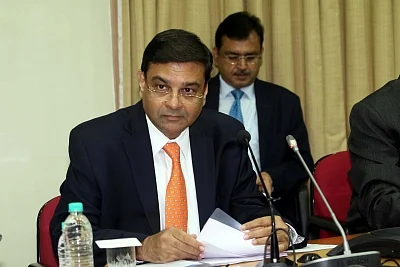Urjit Patel, the 24th governor of the Reserve Bank of India, will be remembered for a few obvious reasons.
He was the governor who presided over demonetisation. In one shot, 86 percent of the country’s currency was scrapped. The Reserve Bank central board, led by Patel at the time, went along with that decision even if the decision was made by the government. This, despite knowing that the RBI was unprepared for the massive currency replacement exercise that would be needed.
He was also the governor who found himself in the midst of one of the fiercest fights with the government of the day. The battle was not just over interest rates or banking regulation but over the manner in which the central bank is governed and on its balance sheet. For the first time in known history, the rare Section 7 of the RBI Act was at threat of being invoked.
And he was the governor who stepped down 10 months before his tenure ended in the midst of tensions with the government.
While much has been said about these three aspects of Patel’s governorship—and much more will be said in the coming days—there are other aspects of Patel’s governorship that must be highlighted. Some good, some bad.
Move To Inflation Targeting
Patel was the first governor to serve as the head of India’s monetary policy committee.
It was under him that the final steps towards a flexible inflation targeting regime were taken. But it was also under him that the first steps were taken.
Soon after Raghuram Rajan took over as governnor amid soaring inflation and a weakening currency, he decided to set up a committee to review the monetary policy framework. That committee was headed by Urjit Patel.
It was the committee’s recommendations that laid the framework for consumer price inflation to be made the nominal anchor for monetary policy. The same committee went on to recommend that the appropriate flexible inflation target for India lies in the band of 4 (+/- 2) percent and that a glide path should be followed to reach that level. As Patel leaves, inflation has remained within that band for most of his tenure.
The Patel committee also recommended the Monetary Policy Committee framework now adopted by India.
A Rule-Based Banking Regime
Patel had been the deputy governor in-charge of monetary policy when he was appointed governor. As such there was reasonable comfort in continuity of the monetary policy framework when Patel took charge from Rajan.
However, commentators, including this writer, were skeptical about his ability to manage the banking regulation function of the Reserve Bank of India.
He had little experience in banking and the question was whether he would be able to finish the many small changes that the RBI had initiated under Rajan.
Patel presently surprised in this regard.
He continued the clean-up of the banking sector and then started to move to the next step—ensuring that the mistakes of the past credit cycle weren't repeated. Weak banks were restricted from lending under the Prompt Corrective Action framework. The 12 February circular put in place a rule-based way to deal with stressed assets. Private banks and bankers were told they must be accountable, too.
To be sure, Patel’s track record in the management of the financial sector is not blemish-free. Many feel the NBFC crisis had been building for at least the last one year. India’s non-bank lenders were growing too fast and the RBI knew it. Patel could have ended the party sooner and with less damage.
Equally, the RBI under him should have been able to detect the trouble brewing at Infrastructure Leasing & Financial Services (IL&FS). It didn’t.
Shunning The Consultative Process
While Patel presided over some important changes, he did a lot of it without much consultation with external stakeholders.
It's true that the RBI isn’t the most consultative of institutions but Patel took the closed-door approach a step further. Over the last two years, hearing bankers complain about lack of access to the RBI governor and his top team has become common place. Market veterans who always had access to the governor and deputy governors have found it difficult to explain their views. New-age financial firms have been left in the dark about policy directions that the RBI is likely to take.
Eventually, the unwillingness to take a consultative approach to problems hit the relationship between the RBI and the government.
There’s no doubt that the differences between the two sides were on serious and substantive issues. But equally there is no doubt that the unwillingness to consult—perhaps on both sides—pushed the fight to a level where the governor was forced to resign.
The Loud Silence
Finally, it must be said that the biggest fault line of the Patel governorship was his inability to put his point across. In the early months of his tenure, the complaints about his uncommunicative nature were restricted to the media. Those complaints were dismissed as unnecessary grumbling from a media hungry for soundbites. As the months passed, complaints above Patel’s unwillingness or inability to communicate his viewpoint effectively became more commonplace.
Ironically, this shortcoming of Patel was on full display at his very last public appearance. At the press conference following the monetary policy review less than a week ago, Patel snapped at a reporter who sought to ask a question on the tensions between the RBI and the government. “I already said that I would avoid those questions. We are here discussing the monetary policy committee resolution,” Patel said angrily.
It would have served his governorship well if Patel had learnt to take the difficult questions and give answers that won him more supporters than critics.
(This article was first published in BloombergQuint)
